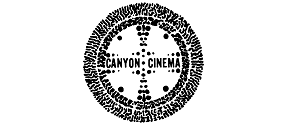Kolkata
- Mark LaPore |
- 2005 |
- 35 minutes |
- B&W |
- SOUND
Rental Format(s): 16mm film
A portrait of North Kolkata (Calcutta), this film searches the streets for the ebb and flow of humanity and reflects the changing landscape of a city at once medieval and modern." - Mark LaPore
Bodies emerge from vaporous passageways, figures traverse flooded streets. Silver packets dance as if sentient, while humans linger somnolent, or at the average tempo required by their trades. Alert, composed or unaware... in frame, in view, unknown. Kolkata, an actual city like all cities nests near a real and an imaginary meridian, contains crossroads of vital pathways and invisible currents. Burrabazar, Chitpur Road, unnamed locations. Immersed in a pandemonium of sonic distortion, the cawing of scavenger crows, the mad repetitions of competing sales pitches and torrential cries. These sound waves break against us, bracing and appalling, brute and... ordinary.
A toxic reduction of a Beethoven bagatelle spills like battery acid into a realm merging commerce and carrion. In time the camera observer is observed as openly as those who are filmed. At a reflective standstill, then resuming a stately yet exhilarating pace. Transported through the arteries of the main printing district, the Passenger is exposed in open display in the crossfire of curious and indifferent gazes.
LaPore respectfully refuses documentary protocol. All of the ramifications of immersion and disclosure have been considered. Cartwheel revolutions provide a rugged pavane the candid tread that plunges us into the matter of fact. Rickshaw wallahs moving through inaccessible streets, were colonial remnants that chafed as an embarrassment to contemporary civic pride and humane considerations. Shunned by the wealthy and unappealing for tourist amusement these cart drivers for hire most often assisted the lower middle class and dependent schoolchildren.They were tolerated as an indispensably practical livelihood. A vehicle of last resort.
LaPore's journey so rooted to the ground amidst the helter -skelter of urban experience is seemingly worlds away from the uncanny funeral transport we see in Dreyer's Vampyr. Yet somehow we sense that double vision that sees from both sides of the pane of existence is at work in Kolkata. The path of progress is actual not allegorical, steps and turns taken with love and despair, in delight without destination, with no exit, discontinuous and finally lost in tumult. This is not the track of a Pilgrim's Progress nor a supernatural portal but still much like Charles Ives described it in relation to his Hawthorne inspired musical composition The Celestial Railway, this is an adventure of noisy procession, a phantasmal parade depicting something personal, national and universal at different strokes of the clock. A journey that indicates what is and what is not, and what has never been. All by simply looking, listening, constructing. As Bresson wrote "Retouching the real with the real."
Chance and precision roughly collide, intimations of mortality season serene composure and cacophony with the tactile illusion of Life. LaPore revisits and rephrases some of the elements presented in his prior film, The Glass System adding a new dimension to his explorations of a beloved city, with shots of extended duration in the spirit of both Warhol and the brothers Lumiere. This attitude regarding duration was a natural declaration of ethics and aesthetics well before the extended take became a merit badge and entered the lingua franca of international cinematic currency.
Mark LaPore labored hard to finish many films in the late summer of 2005; among the greatest were Kolkata, Shop Windows, River of No Return and Princess Nicotine. Each of these films is unique, incomparable even in relation to LaPore's prior body of work. Each film increasingly enigmatic yet direct, uncommonly confiding. Kolkata premiered posthumously just two weeks after the filmmaker's death. The other films at this late date remain unreleased. - Mark McElhatten


